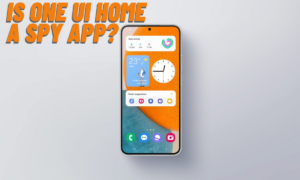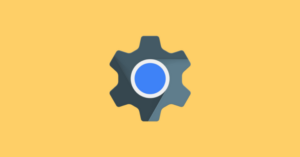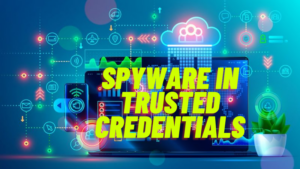Our phones have evolved to become our digital counterparts. However, as cybercrime is on a steady rise, our phones are no longer safe. Instead, they can expose your data and crucial information, and someone can spy on the messages and compromise your security. In this article, we will have a closer look at how to detect spyware on iPhone and how to find hidden tracking apps on the iPhone. These apps can be used to track text messages, calls, social media chats, media files, and much more.
How to Find Hidden Tracking Apps on iPhone
Can spyware be installed on iPhone devices? Unfortunately, yes. In today’s age of digital devices and exploits, one can never be completely sure about their online safety.
Hackers are inventing new ways of gaining access to other people’s phones, and this can be hard to detect. iPhone spyware detection can be performed in a couple of different ways, most of which we will discuss thoroughly in this article.
Here are some most common symptoms of having spyware on your iPhone device.
Faster Draining of Battery
Spyware on an iPhone can increase the usage of your battery and could make it drain out faster.
To find out, check if you have any app that uses a lot of battery. If you find any that’s taking up such a huge amount of your battery usage and you haven’t installed it from the app store, this could be a sign of spyware on your iPhone.
Increased Data Usage
Sometimes, because spyware runs in the background, it can eat away your data. Some spy tools require internet access, which is precisely what leads to this situation. You can quickly check your data usage through Settings or by contacting your service provider. If you notice an increase in use, then you should consider this as a sign of spyware on your phone.
Overheating of the Device
Monitor your device to see if it is warm even when not in use. An idle iPhone indicates that a malicious app is running in the background without your knowledge and that you must consider removing this spyware from your iPhone.
Strange Noise While Calling
Have you ever noticed strange noises coming from your iPhone while making calls?
If yes, then the chances are that your privacy is compromised and hackers are listening to your conversations using spyware on your phone. These noises may sound like beeping, static electricity, or echoes. If you notice any of these, then act quickly, because you might have spyware on your device.
Can I Scan for Spyware on My iPhone?
Search for Cydia app
The Cydia app only works on iPhones that are jailbroken. If you didn’t jailbreak iOS or Android but still find this app on your device despite not installing it yourself from the app store, the chances are high that your phone is infected with spyware and that someone is spying on you.
To look for the app, dial “4433*29342” in the spotlight search and see what pops up.
On Mac devices, you can check whether you have any spyware by doing the following:
- Open the Launchpad.
- Find Other and open it.
- Locate the Activity Monitor option.
- Check whether you have any weird programs running in the background.
Types of iPhone Spyware
Now that you know all the warning signs that might point to the presence of spyware on your phone, let’s understand the different types of spyware.
Masque Attack
Masque attack is a recently discovered iOS vulnerability that was identified by a renowned security company called FireEye. This vulnerability exists on iOS 7.1.1, 7.1.2, 8.0, 8.1, and 8.1.1 beta devices. The whole point of this exploit is to convince users to install apps that are cleverly disguised as legitimate apps.

The name “masque attack’’ comes from the fact that these fake, dangerous apps disguise themselves as legitimate applications. That is precisely why you should be extra careful when downloading any non-official apps.
iCloud Backup Attack
Since most users back up their data to prevent any significant loss in case their phone got lost or stolen, hackers have decided to try to exploit this fact. iCloud is like an endless supply of sensitive information for hackers. Not to mention the fact that this data can be sold on the dark web for a crazy amount.
Hackers utilize third-party spy software that can be installed on the phone remotely to access the victim’s iCloud and steal data. However, to successfully perform this, they will need access to your Apple ID and password.
To avoid this from happening, you should consider implementing two-factor authentication and change your Apple ID password every few months.
Spy App Infestation
iPhones are particularly vulnerable to spy app infestation because users are often forced to download apps from reputable sources. That happens because the App Store has imposed strict restrictions in regards to which apps are available for download.
Unfortunately, hackers often utilize free download platforms to upload apps that had been infected with spyware. To make the matter even worse, this type of spyware is quite hard to detect because it runs in the background.
Installing anti-spyware software might be your best chance for fighting off spying software on your iPhone if someone is spying on you.
How to Remove Spyware from iPhone
First and foremost, we have to say that there isn’t such a thing as the best anti-spyware for iPhones. Your best shot is to combine different techniques to ensure that someone won’t hack your iPhone.
Below, we discuss some iPhone spyware detection tools and techniques that can be used on all versions. You must understand here that if someone is using these to spy on your phone, their intent is different from a parent installing a parental control program on it. Let’s dive right in!
Update your OS
Just like updating antivirus, keep updating your operating system as well. OS upgrades usually come with better security, thereby eliminating Spyware. Here’s how to update your OS on iPhone:
- Open Settings.

- Locate the General tab and open it.

- Find the Software Update option and click on it.

- If there’s a new update, you will be prompted with a Download and Install option. Choose that and wait for the installation process to complete.

Malware Scan
Use any of the antivirus solutions available for iPhone spyware removal. Remember that this does not prove to be helpful in all cases. However, even though they aren’t 100% effective, they still do a pretty good job of removing spyware.
The scanning process takes approximately 5-10 minutes, after which you’ll see whether any threats have been discovered. Once done, just quarantine or delete the threats, and you should be good to go.
We recommend popular security software such as Avast, AVG, Malwarebytes, and ADW.
Change Your Password
If you think that your iPhone is not behaving normally, you should go ahead and change its password to stay safe.
If someone has your iPhone passcode, they might be able to access your device remotely, which is why you should change the password as soon as possible.
Here’s how to do it:
- Open Settings.

Locate the Face ID & Passcode option (or Touch ID & Passcode on some iOS versions)

- Choose the Change the Passcode option.

- Enter your old password to verify.
- Select a new password.
Two-factor Authentication
Two-factor authentication, when enabled, will ask for a second authentication during login and other account activities. Although this step does add an extra 10 seconds to your unlocking routine, it is a great way to fight off hackers. Two-factor authentication acts as an additional layer of security between you and your device.
Two-factor authentication is particularly useful if you choose the biometric or facial scanning option. This means that even if the hackers had your password and your email, they wouldn’t be able to access your accounts without going through the second verification step, which is nearly impossible.
Factory Reset
As a last resort, you can always perform a factory reset. This is the most effective way of removing spyware from iPhone because you are deleting virtually everything on your phone.
However, we recommend backing up important files before performing a factory reset (including WhatsApp). Otherwise, you’re risking a massive data loss as you’ll lose all your files, text messages, and other data.
Here’s how to perform a factory reset on iPhone devices:
- Open Settings.

- Go to the General tab.

- Press the Reset option.

- Select the Erase All Content and Settings option.

Create a New Email Address
It is also a good idea to create a new email account altogether. If hackers somehow got ahold of your email address and other credentials, then you are putting yourself at risk of always being monitored.
The only way to ensure that your hacked email doesn’t compromise your privacy is to create a brand new email address which you’ll connect to your iCloud and other accounts.
Read also: What is system ui used for?
In Conclusion
More problems can affect your iPhone than you can imagine. Stay alert and keep away from unnecessary clicks, be it updates or websites.
And know that every issue can be resolved with the right approach. This guide showed you various ways on how to find hidden tracking apps on iPhone, so you know the right signs to look out for and save your data from being stolen.



